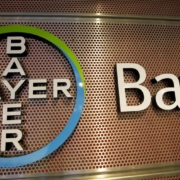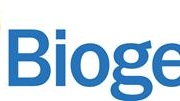Germany’s Bayer won fast-track status from U.S. drugs regulators for a new blood thinner designed to prevent certain types of strokes, as the company seeks to follow up on the success of the anticoagulant Xarelto.
The U.S. Food and Drug Administration approved Abbott’s Amplatzer Amulet Left Atrial Appendage Occluder to treat people with atrial fibrillation (AFib) who are at risk of ischemic stroke.
Biogen Inc. exercised the company’s option to acquire TMS-007, an investigational drug for acute ischemic stroke, from TMS Co. Ltd.
AstraZeneca released positive data from the Phase III THALES trial of Brilinta (ticagrelor) used twice a day with an aspirin.
Toronto-based NoNO Inc. announced results from the pivotal Phase III ESCAPE-NA1 trial of intravenous nerinetide in patients with acute ischemic stroke who were chosen to undergo endovascular thrombectomy.
Valentine’s Day Matters of the Heart, Biopharma-Style
and Vascular Biology, Approvals, Arteriosclerosis, Business, Cardiovascular, Collaborations, FDA, Life Sciences, Medical Journals, Stroke, Therapeutics, Thrombosis, Tumor Necrosis Factor (TNF), Type 2 Diabetes, University of South Florida (USF Health), Valentine's DayOn Valentine’s Day, BioSpace would be remiss not to mention, er, matters of the heart. There are reportedly 59 life sciences companies or organizations worldwide that focus on the cardiovascular system, ranging from the Aab Cardiovascular Research Institute based in West Henrietta, New York to XyloCor Therapeutics, with headquarters in Philadelphia. That number is probably low.
The Bristol-Myers Squibb-Pfizer Alliance and Fitbit announced at the TIME 100 Health Summit in New York that they are working together to help drive timely diagnosis of atrial fibrillation (AFib) with the aim of improving earlier detection in individuals at increased risk of stroke.
Few nutritional supplements can protect people from developing or dying from cardiovascular disease, and some may actually be harmful, a research review suggests.
Yale University scientists succeeded in restoring basic cellular activity in pigs’ brains hours after their deaths in a finding that may one day lead to advances in treating human stroke and brain injuries, researchers reported.
Blood pressure and stroke risk rise steadily the more alcohol people drink, and previous claims that one or two drinks a day might protect against stroke are not true, according to a genetic study.






